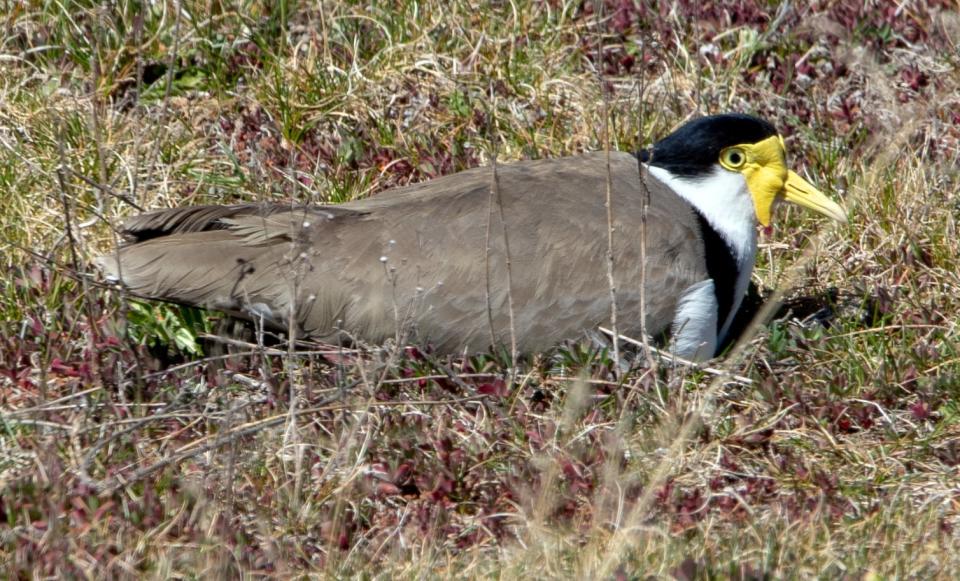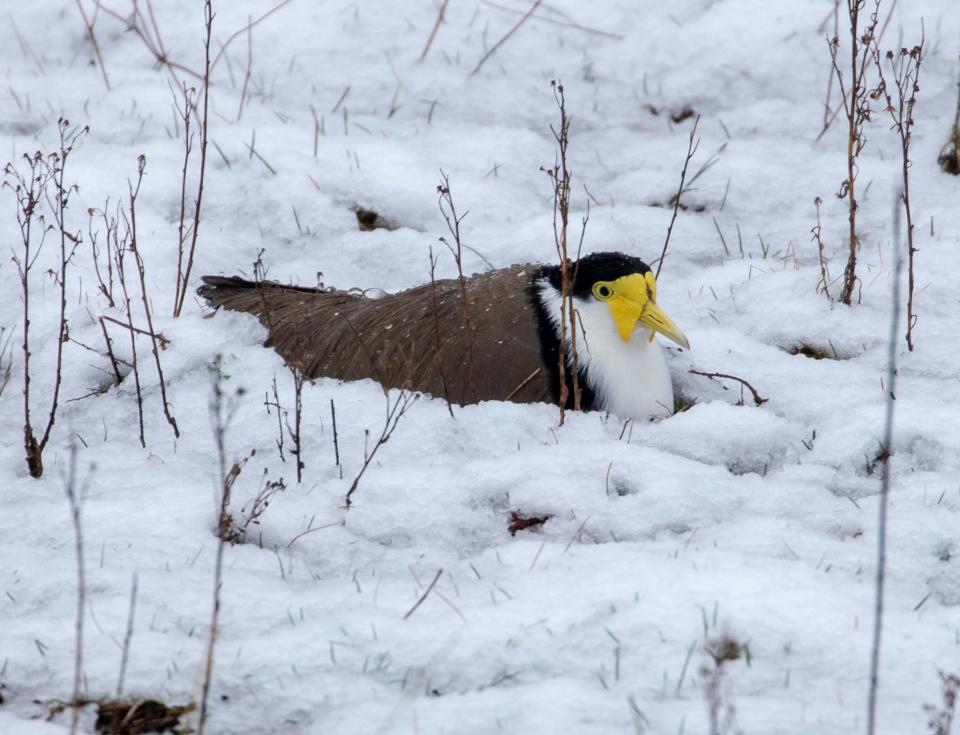'A quick fix': Vet's plea after chicks removed from school oval
Days after three baby birds were removed from a Gold Coast primary school oval because of welfare concerns, a local vet is pleading with Aussies to try and live in harmony with nesting wildlife.
Swooping plover parents were causing alarm among the Broadbeach State School community, so on Monday, staff called in a wildlife handler to capture the birds.
With the school in an urbanised area, there were no options for release, and the difficult decision was made to take the birds away from their protective parents.

Gold Coast vet Dr Kevin Cruickshank, who assessed the birds’ health, told Yahoo News Australia that he would have preferred the school set aside an area for the dedicated parents to raise their chicks.
“I would have liked to see the school more willing to work together with wildlife on their property,” he said.
“It’s not long until school holidays, and soon these babies will be off and fending for themselves, and then the parents won’t be so territorial.
“I think there are better ways to manage the situation - it’s just a quick fix for the school.
“But it has a huge impact for the poor birds.”
‘In the interest of human safety’
Dr Cruikshank knows that birds raised in care have a lower chance of survival as they often lack survival knowledge and territory.
“They can become imprinted onto people and they can become a problem bird once released,” Dr Cruickshank said.
“Releasing them is fraught with difficulties of finding a suitable environment and territory and they can actually be attacked to death at that point - even when they’re bigger and stronger - by other birds and that’s a real problem.”
A spokesperson for the Department of Education issued a statement to Yahoo News Australia about the plover chicks.
“Like all Queensland schools, Broadbeach State School holds the safety and welfare of its students as its highest priority,” they said.

“School staff contacted a professional wildlife handler in response to territorial swooping birds on the school oval.
“In the interests of human safety and animal welfare concerns, two juvenile birds were safely relocated to a wildlife carer.
“Anyone with concerns should contact the principal.”
Every spring, humans come into contact with native birds, who will sometimes aggressively protect their nests.
Plovers will aggressively defend their nests, but unlike magpies, they rarely make contact with humans.
The yellow-faced plovers, also known as masked lapwings, nest in open spaces and their chicks are often targeted by cats, dogs and native animals.
Photos taken in Blackheath, NSW of a plover keeping its eggs warm in snow yesterday, illustrate how dedicated to their young the birds can be.


Making an artificial nest
Dr Cruickshank said he is happy to assess any native wildlife free of charge as a community service, but reaffirmed that the best place for a healthy baby bird is with its parents.
Why animal lovers' 'kind act' may be killing Australian birds
'Walking dead': The toxic supermarket product killing Aussie wildlife
He suggests anyone who finds a baby bird on the ground should put it back in the nest and the parents are most likely hiding nearby.
“We also have a system where we try and create an artificial nest for them,” he said.
“It’s essentially a bucket with holes in the bottom so if it does happen to rain, they’re not going to drown.
“Then one puts some natural leaves in there and very importantly puts a stick in there and that gives the baby somewhere to rest.”
“The parents will be able to feed it and the bucket will give protection from other territorial birds.”
The author, Michael Dahlstrom, is a registered wildlife carer in NSW.
Do you have a story tip? Email: newsroomau@yahoonews.com.
You can also follow us on Facebook and Twitter, download the Yahoo News app from the App Store or Google Play and stay up to date with the latest news with Yahoo’s daily newsletter. Sign up here.



